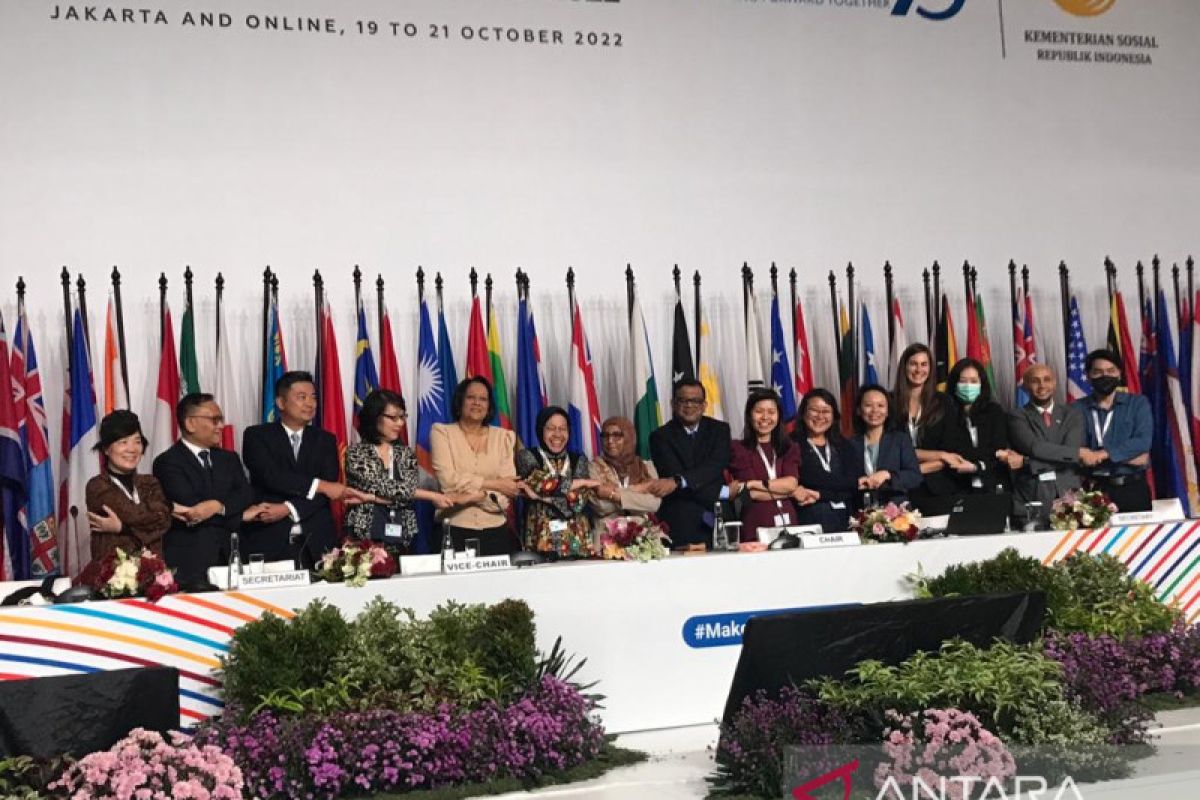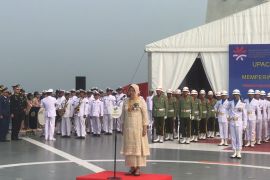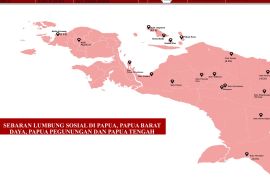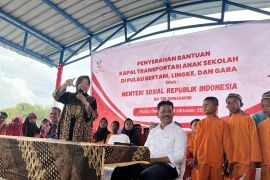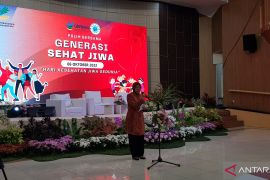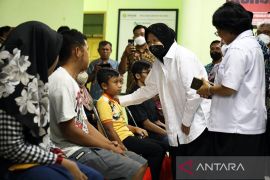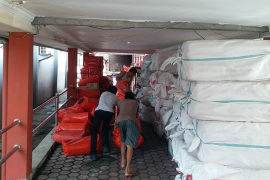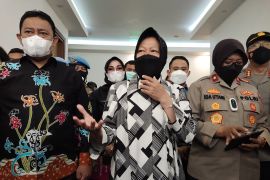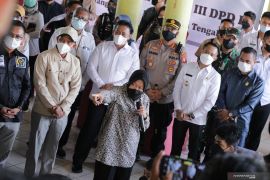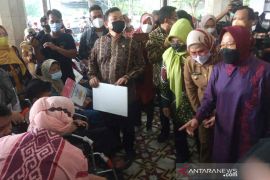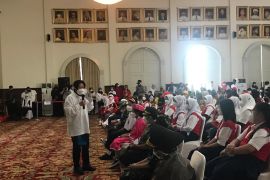"Through the Jakarta Declaration, we reaffirm our global commitment to a better life for all people with disabilities," Indonesian Social Affairs Minister Tri Rismaharini said while leading the meeting for the final review of the implementation of the Asia and Pacific Decade of Persons with Disabilities in Jakarta on Friday.
It is time to increase efforts and take affirmative steps to implement universal design in all public areas, increase the capacity of people handling persons living with disabilities in all sectors, and conduct a national breakthrough campaign to build awareness about disability, Rismaharini emphasized.
The Jakarta Declaration has been approved as a global commitment for a better life for people living with disabilities. The minister said that with the Jakarta Declaration, the world has affirmed its commitment to people living with disabilities.
UNESCAP member countries have agreed that the Asian and Pacific Decade of Persons with Disabilities 2023–2032 must continue to focus on the effective implementation of the Incheon Strategy and the Beijing Declaration, including the “Action Plan to Accelerate the Implementation of the Incheon Strategy.”
The member countries have also underlined the importance of making strategic investments to push disability-inclusive development through a whole-of-society approach in collaboration with all relevant stakeholders, especially organizations of persons with disabilities and private sector entities, in order to accelerate action to promote and protect the rights of persons living with disabilities.
"I encourage all participants to continue their cooperation with one another and to take all necessary steps to make the recommendations formulated during this meeting. Now and in the next decade, we must come together and work it out," Rismaharini said.
The first point of the Jakarta Declaration is to harmonize national legislations with the Convention on the Rights of Persons with Disabilities, after the convention is ratified, by conducting a comprehensive and regular review of national legislations and appropriate regional regulations.
The second is to promote the meaningful participation of women and men with disabilities of all ages—including by closely consulting and actively involving children and youth with disabilities through their representative organizations—in planning, implementation, and decision-making on policies, programs, and political processes through reasonable accommodation.
The third point involves paying special attention to the special needs of persons with diverse disabilities and women, children, and elderly with disabilities to increase the accessibility of the physical environment, public transportation, information and communication, including information and communication technology and systems, and essential information and services related to disaster risk and public health emergencies and other public services.
The fourth is to promote the power of the private sector, including its resources, innovation, and technology talent, to push disability-inclusive development by adopting disability-inclusive public procurement policies to promote the adoption of universal design and accessibility measures for infrastructure, technology, and information and communication services that are publicly obtained.
The fifth is to promote a gender-responsive life cycle approach to develop and implement policies and programs related to disability by paying special attention to children, youth, women, and elderly people living with disabilities.
The sixth is to take action, based on information provided by competent national institutions and other recognized sources, to close the disability data gap and strengthen the capacity to track progress in disability-inclusive development at the national and subnational levels by producing comparable and qualified data as chosen by gender, age, and disability across sectors.
Related news: UNESCAP highlights need to mitigate, adapt to climate change
Related news: G20 DEMM yields consensus on three DEWG issues
Translator: Devi Nindy Sari R, Resinta S
Editor: Rahmad Nasution
Copyright © ANTARA 2022
